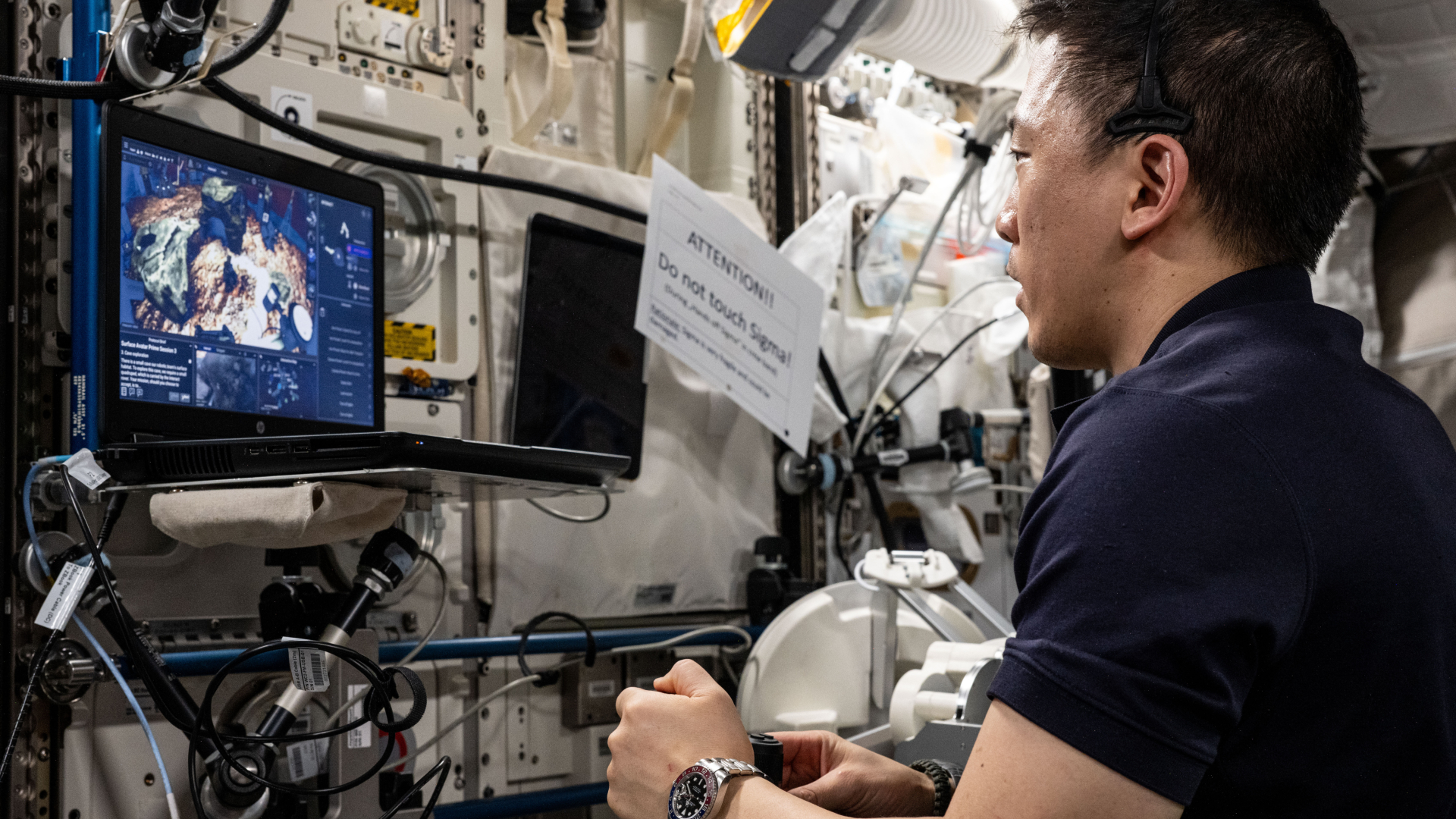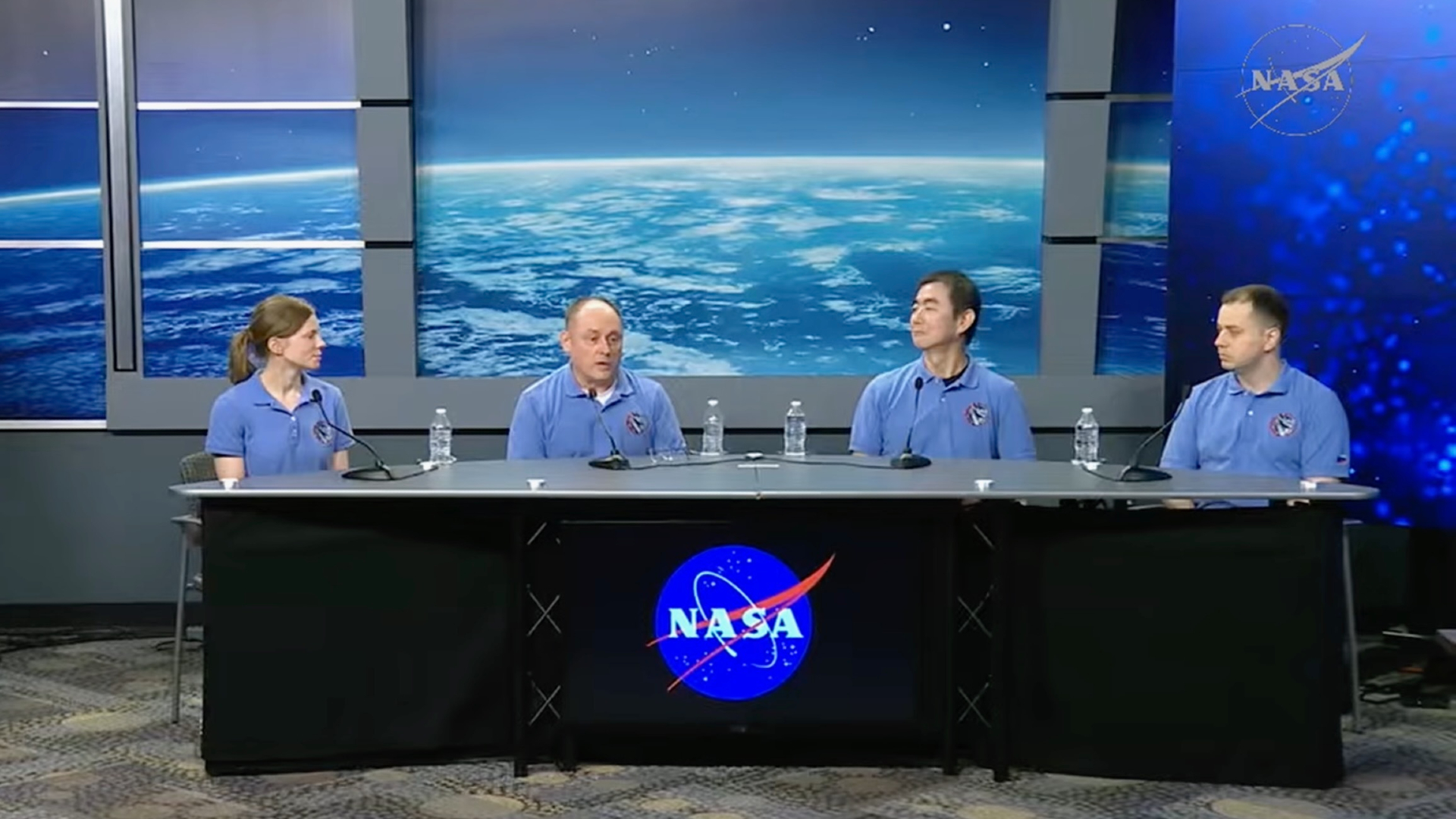ISS astronaut Jonny Kim says controlling robots on Earth felt like playing video games: 'This demo brought me right back'
The only problem with being an astronaut? Less time for video gaming.

When NASA astronaut Jonny Kim took control of four robots from space this summer, he reactivated a dormant passion of his: video games.
Kim is on board the International Space Station right now and recently participated in a tech demonstration that saw him virtually explore a Mars-like landscape alongside the robotic quartet, who were all roaming a German space agency (DLR) facility near Munich.
On X, Kim shared the Surface Avatar series in which he participated was one of the most fun demos he's done during his six-month ISS mission, in part because it reminded him of challenging himself against virtual characters and environments.
"Growing up, I played a lot of video games — and while I still enjoy gaming with my kids, time is scarcer these days," Kim wrote on Aug. 27. "This demo brought me right back, blending elements of real-time strategy, RPGs [role-playing games], and first-person play into something very real."
One of the most fun technology demonstrations I took part in during this mission was with a global team exploring how remote robotic operations could support future missions on other worlds. Growing up, I played a lot of video games—and while I still enjoy gaming with my kids,… pic.twitter.com/zjuvAzCJ54August 27, 2025
Kim, 41, is old enough to remember some of what the industry now calls the "golden age of video games" in the 1970s and 1980s — a time when malls across America had amusement arcades, and the first consoles began popping up in households that could afford them.
Pac-Man, Mario, Tetris, The Legend of Zelda and Sonic the Hedgehog are just some of the breakout franchises from this era—which also saw a few big flops, such as Atari's infamous E.T. the Extra-Terrestrial. Another big boom came in the 1990s, however, with the PC and Mac gaming era growing fast alongside a new set of consoles.
Kim didn't discuss which games he plays or used to play, but he's definitely interested: his official NASA biography literally mentions "video games" as a hobby. The former Navy SEAL is likely a fan of the first-person shooter and strategy series Halo, however, as he told the Annals of Emergency Medicine in 2018 that he was then reading a book based on 2010's Halo: Reach.
Breaking space news, the latest updates on rocket launches, skywatching events and more!
On X, Kim noted that controlling the Martian-like robots was much like the "fog of war" that one encounters in strategy games, especially because he could see a mini-map in orbit that matched each of the robot's perspectives.
"The setup was awesome," he said. "A joystick and advanced robotic arm controller let me mimic finger and wrist movements with precision. A heads-up display kept me informed with battery levels, location data, and quick access to either an AI assistant or ground teams."
The four robots Kim drove included two from DLR—humanoid Rollin' Justin, and a four-legged machine called Bert—and two from the European Space Agency, which were the Interact rover and another four-legged helper dubbed Spot.
Kim said he most enjoyed working with both Interact and with Bert, who maneuvered into a "cave" with mock drawings that looked like prehistoric art from the Lascaux caves in France. Bert's ability to "crawl into tight spaces like caves [was] a feature that felt straight out of a game, but with real scientific potential," Kim noted.
The Expedition 72-73 crew launched in April, which means Kim should be coming home in about November. Apparently, Kim's kids can't wait for him to arrive, because having him in space presents a big drawback: "My son's just asking me when I can play video games with him again," he told NPR in June.

Elizabeth Howell (she/her), Ph.D., was a staff writer in the spaceflight channel between 2022 and 2024 specializing in Canadian space news. She was contributing writer for Space.com for 10 years from 2012 to 2024. Elizabeth's reporting includes multiple exclusives with the White House, leading world coverage about a lost-and-found space tomato on the International Space Station, witnessing five human spaceflight launches on two continents, flying parabolic, working inside a spacesuit, and participating in a simulated Mars mission. Her latest book, "Why Am I Taller?" (ECW Press, 2022) is co-written with astronaut Dave Williams.
You must confirm your public display name before commenting
Please logout and then login again, you will then be prompted to enter your display name.
